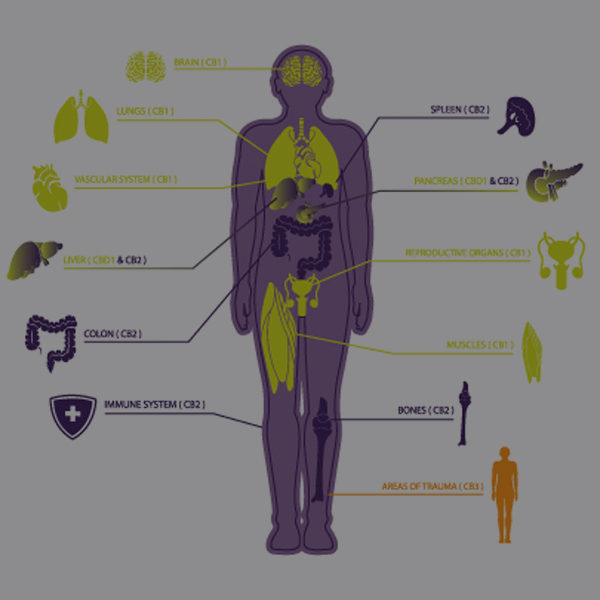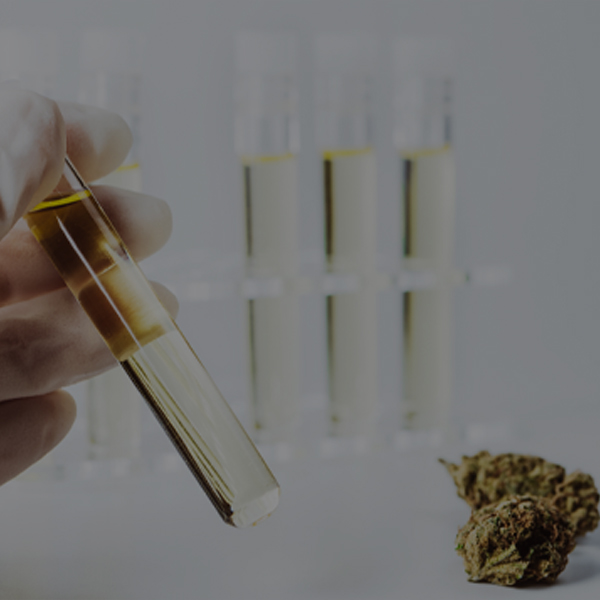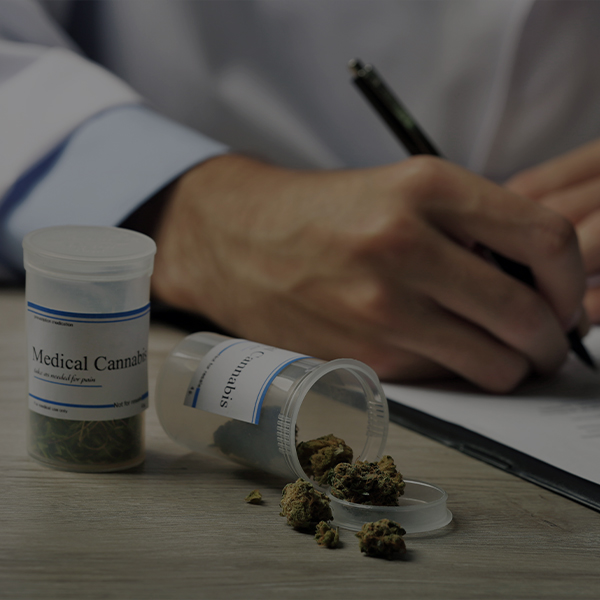Master of Science in Medical Cannabis (Retired)
This program has been retired and is no longer being offered.
The Master of Science in Medical Cannabis Therapeutics program (MS-MCT) prepared students to thrive in the cannabis industry as healthcare providers, advocates, educators, coaches, or entrepreneurs. Graduates learned to use cannabis science evidence and holistic approaches to educate, coach, and advocate for cannabis patient populations.
Please note that this program has been retired and is no longer being offered. We welcome you instead to the online medical cannabis certificate program, which starts three times per year: January, May and September!
Master of Science in Medical Cannabis Therapeutics Program Overview
30 credits
100% online
Combination of optional recorded live classes and asynchronous assignments
Highly qualified, post-graduate level faculty
The Master's degree in Medical Cannabis Therapeutics (MS-MCT) program prepared graduates to:
- Enter the cannabis industry as healthcare providers, advocates, educators, or coaches.
- Apply evidence-based, conceptual cannabis knowledge to clinical settings.
- Employ best practices in patient assessment, dosing guidelines, and routes of administration.
- Learn to use cannabis science evidence and holistic approaches to educate, coach, and advocate for cannabis patient populations.
- Be thought leaders in coaching and educating cannabis patients, the general public, policy makers, and the medical community.


Timothy Byars
Program Director

Admissions Requirements
- Bachelor’s degree in health or science related field or 90 credits in related field
- Completion of at least one semester of Anatomy/Physiology or a clinical terminal degree or program director’s permission
- Preferred minimum GPA: 3.0
- Resume or CV
- 300-500-word statement of intent
- English language proficiency
Schedule and Course Delivery
The Master of Science in Medical Cannabis Therapeutics degree program courses were offered online, using a combination of synchronous and self-paced formats. For each seven-week course, two to three weeks were comprised of live classes, while the rest was asynchronous coursework with defined weekly outcomes.
A full-time student could complete the degree program in as few as twenty months. Live classes were delivered in real time, with audio and video connection to faculty and fellow students. The connection among participants was comparable to that of on-site classes, with the added benefit of attending from the comfort and convenience of home. Distance education extended students’ network of opportunities internationally, while Pacific College’s synchronous instructional design fostered camaraderie often exceeding that of on-site models.

Master's in CANNABIS Program Learning Outcomes
Upon the successful completion of this program, our alumni are able to:
- Explain the anatomical and physiological mechanisms of the endocannabinoid system.
- Evaluate evidence-based literature to make informed decisions about medical cannabis (CBD) treatment protocols.
- Critically assess emerging cannabis legislation in the context of historic, legal, and ethical issues.
- Practice a culture of harm reduction with medical cannabis for populational health across the lifespan.
- Apply knowledge of cannabis pharmacokinetics and pharmacodynamics to determine the safety, efficacy, and appropriateness of cannabis use.
- Apply holistic, person-based care while respecting patient values within the scope of professional practice.
- Demonstrate a commitment to the therapeutic application of cannabis (CBD) through advocacy, professional development, and interprofessional collaboration.
- Evaluate social justice initiatives to ensure equitable access to the cannabis industry and to cannabis health care.
- Evaluate how bias, structural racism, and social determinants facilitate cannabis healthcare inequities.
Model Curriculum
| Term | Course Title | Credits |
|---|---|---|
| Term 1 | Introduction to Medical Cannabis History and Policy | 3 |
| Introduction to the Endocannabinoid System | 3 | |
| Term 2 | Therapeutic and Medicinal Uses of Cannabinoids, Terpenes, and Flavonoids | 3 |
| Advanced ECS and Cannabinoid Pharmacology | 3 | |
| Term 3 | Cannabis Research and Evidence-Based Literature Review | 3 |
| Ethics, Advocacy, and Public Health: Emerging Issues for Healthcare Professionals | 3 | |
| Term 4 | Adverse Effects, Product Safety, and Patient Recommendation Considerations | 3 |
| Cannabinoid Therapeutics I: Clinical Applications for Symptom Management | 3 | |
| Term 5 | Cannabis Therapeutics II: Clinical Applications for Chronic Conditions | 3 |
| Capstone | 3 |
Courses IN THE MS of Science in Medical Cannabis Therapeutics
Click on the image inside any of the thumbnails below to read the course description (note: clicking on the course name will not open the pop-up window).

Introduction to Medical Cannabis History and Policy

Introduction to the Endocannabinoid System

Therapeutic and Medicinal Uses of Cannabinoids, Terpenes, and Flavonoids

Advanced ECS and Cannabinoid Pharmacology
In this course, students will build on their understanding of the anatomy and physiology of the endocannabinoid system— including the receptors (their locations throughout the body and their physiological relevance), endogenous ligands, and enzymes that metabolize those ligands— and how those parts work together to facilitate biological homeostasis. A focus of this course will be on advanced concepts related to cannabinoid pharmacokinetics and pharmacodynamics. While the emphasis on this course is not botany, some attention will be given to cannabinoids and other compounds in the cannabis plant that interact with and influence the ECS. For example, students will evaluate how different routes of administration impact the absorption, distribution, metabolism, and elimination of phytocannabinoids. Finally, this course goes beyond the discussion of the cannabinoid receptors and explores how non-cannabinoid receptor mechanisms can influence the ECS.

Cannabis Research and Evidence-Based Literature Review

Ethics, Advocacy, and Public Health: Emerging Issues for Healthcare Professionals

Adverse Effects, Product Safety and Patient Recommendation Considerations

Cannabinoid Therapeutics 1 & 2
In these courses, students will be introduced to assessment, symptom management, and therapeutic dosages for cannabis patients. Additionally, students will explore the therapeutic effects of cannabinoids for symptom management. Scientific and clinical evidence will be used to support the clinical use of cannabinoids in a safe and effective manner. These courses focus on the physiology, pathophysiology, and evidence-based cannabinoid treatment strategies for psychiatric, neurological, gastrointestinal, oncological, cardiovascular, immunological, respiratory, and musculoskeletal disorders. Students will also explore the therapeutic effects of cannabinoids on specific conditions and disease states. Scientific and clinical evidence will be used to support the clinical use of cannabinoids in a safe and effective manner, focusing on the physiology, pathophysiology, and evidence-based treatment strategies for psychiatric, neurological, gastrointestinal, oncological, cardiovascular, immunological, respiratory, and musculoskeletal disorders.
Cannabinoid Therapeutics II: Clinical Applications for Chronic Conditions

Capstone
Master's degree in Medical
Cannabis Therapeutics FAQ
Who was eligible for the Master of Science in Medical Cannabis Therapeutics Program?
To be eligible for the MS in Medical Cannabis Therapeutics Program, students must have had the following:
- Bachelor’s degree in health or science related field or 90 credits in related field.
- Completion of at least one semester of Anatomy/Physiology or a clinical terminal degree or program director’s permission.
- 300-500 word statement of intent.
How long was the Masters in Cannabis Program?
What was the class schedule like for the Master of Science in Medical Cannabis Therapeutics Program?
What was the tuition fee for the Master in Cannabis?
Is Pacific College of Health and Science accredited?
Did Pacific College of Health and Science offer financial aid?
What were the learning outcomes for alumni of the Master of Science in Medical Cannabis Therapeutics?
Were the Master of Science in Medical Cannabis Therapeutics Program classes recorded?
Can alumni recommend medical cannabis upon completion of the Master of Science in Medical Cannabis Therapeutics Program?
Looking for Medical Cannabis education?
If you think a career in medical cannabis is something you would like to pursue, we encourage you to look into the online Medical Cannabis certificate program or contact us and speak to an admissions representative to get started on your new journey!
For more information, call (855) 866-6767 or fill out our contact form to be contacted by a Pacific College representative.
